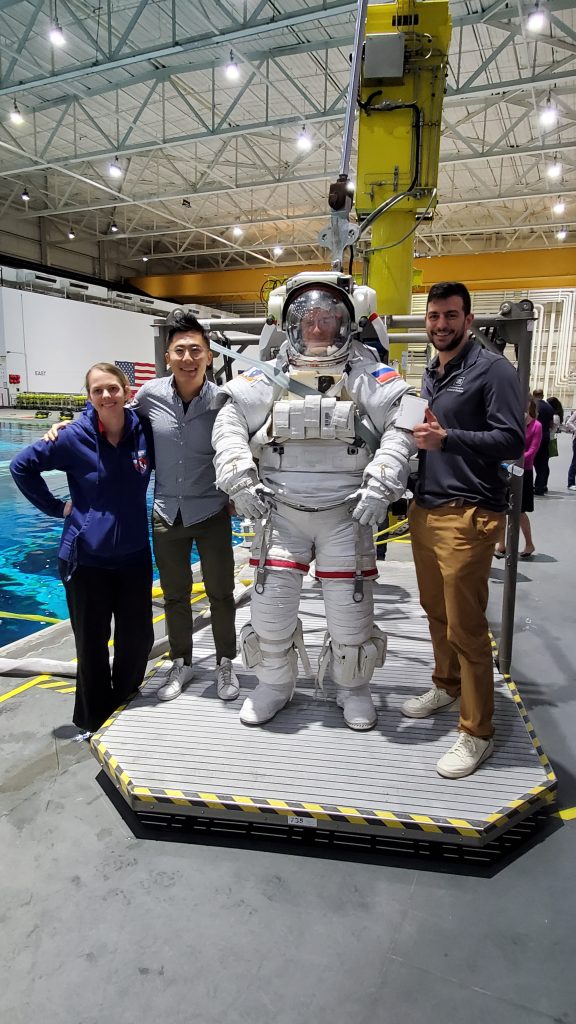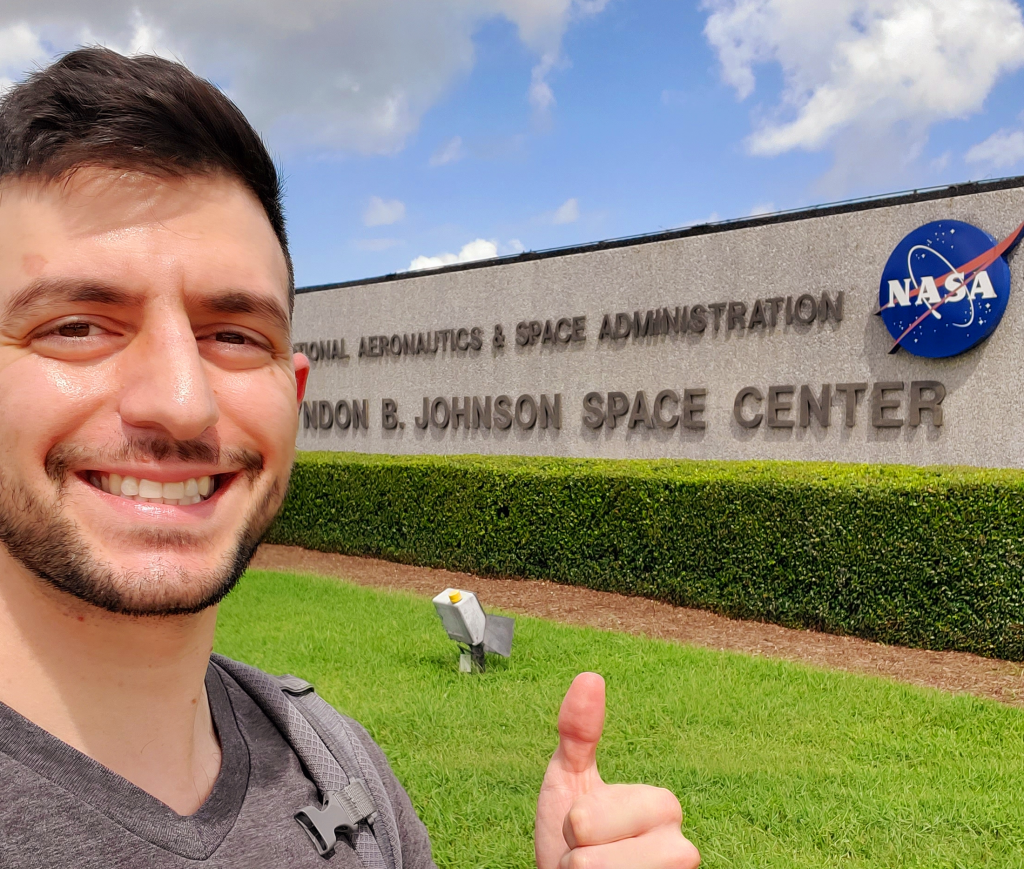We love sharing stories about the medical students here at Nevada Surgical in Reno, and the one about Jonathan Gevorkian is something special. A preceptorship for Jonathan snowballed into a co-author opportunity with Dr. Sasse on several key research papers, as well as a specific career path, while a secret desire to be an astronaut recently took him all the way to NASA.
The Path Forward
“I was first given the great opportunity to work with Dr. Sasse as a preceptorship during the summer between my first and second year of medical school,” explains Jonathan. Instead of working the standard four weeks of the program, Jonathan spent a full seven weeks with Dr. Sasse. “He was gracious enough to take me on during his busy schedule and patiently taught me the ins and outs of what entails the life of a surgeon.”
Dr. Sasse saw something special in Jonathan from the beginning. “Jonathon has been a great pleasure to work with,” he says. “His scientific curiosity, acumen, and work ethic are just what you like to see among young providers entering the medical profession.” It’s why Dr. Sasse asked Jonathon to co-author key research papers. Recently, Jonathan was honored when a research abstract on techniques for safer sleeve gastrectomy procedures was accepted the national meeting for the Society of Gastrointestinal and Endoscopic Surgeons.
The preceptorship was more than just valuable experience – turns out, it was a path that helped Jonathan settle on surgery as a career choice. “The experiences that I had gone through during my clinical rotations have helped me realize the type of clinician and surgeon I want to be as a professional in the future,” he says. “I can’t imagine doing anything else with my life.”
And still, there’s more to his time here at Nevada Surgical.
“What cannot be left unsaid is that during the latter three years of my medical education, I worked with another team in Dr. Sasse’s practice,” says Jonathan. “Individuals like Mark Conte and Dr. Sasse himself have been with me in terms of guidance and counseling during the good and challenging times, serving as not only mentors and professional advisors, but also as friends and good human beings. These things may seem trivial, but in a field where time is a rare commodity and everyday life can be extremely taxing and stressful, they’re worth their weight in gold. And for that I am extremely grateful and could not imagine my medical education without it.”
 But First – NASA!
But First – NASA!
As a fourth-year medical student, Jonathan was one of twenty individuals to attend a recent four-week clerkship in Houston. It was, in a word, “phenomenal,” says Jonathan. The medical students and residents work with various teams at NASA to further space travel research. “We were also taken on many tours to learn about the facilities at Johnson Space Center as well as learning about space physiology, the intricacies of how missions work, and future missions to come,” says Jonathan.
“My first project was to develop a medical delivery option for the Orion astronauts while they are in their orange Launch Entry Abort (LEA) suits,” he says. “These orange LEA suits are designed to sustain Orion astronauts for up to 144 hours in case of emergency, such as a breach in the hull of the capsule. This will allow them time to return to earth from any point in their lunar mission. During the time in which they are in these suits, they will not be able to remove any portion, and that is where my project comes in. In the case of this emergency setting, if astronauts develop any medical emergency requiring medications, my project responsibility was to devise a delivery method for a list of medications for a plethora of medical emergencies that we determined might develop during that time.”
History repeated itself, and Jonathan’s four-month clerkship was extended another four weeks. During his second month, he developed biosensors for the LEA suits, along with a medical training protocol for the astronauts both orbiting and on the lunar surface. Jonathan was also invited back to continue working on the Orion program and the medical mission components.
“My time at NASA was extremely rewarding both professionally and personally,” he says. “It helped me realize that the shackles of limitations that we put on ourselves in our professions are only a construct that we develop here on earth. By working with the teams at NASA, I was able to see the amazing opportunities of expanding my work and contributing to future space travel. It’s interesting to note that the amazing work that the individuals do and NASA for space travel can contribute to terrestrial medicine and everyday life. The work I did there helped me understand medicine from a new angle, and I have been able to critically think about many things that will help me in my surgical residency next year.”
Looking Ahead
Jonathan’s plans for the future are impressive. “My goal is to become an amazing and competent general surgeon like Dr. Sasse,” he shares, “as well as possibly returning to NASA and contributing my knowledge in medicine to future space travel.”
To that endeavor, he’s applied for the upcoming astronaut training candidacy. “I’d like to see how I can apply surgery for the next phase of space travel,” Jonathan explains, “which would be from space exploration to space colonization. Ideally, the work that I do in the future for NASA can also be applied to the betterment of terrestrial medicine and surgery.”
These are grand ambitions, and Jonathan will lean heavily on his training and experiences going forward. We’re truly honored that his time here at Nevada Surgical will be part of that. To Jonathan – congratulations on your achievements so far, and we hope you continue to shoot for the stars!




